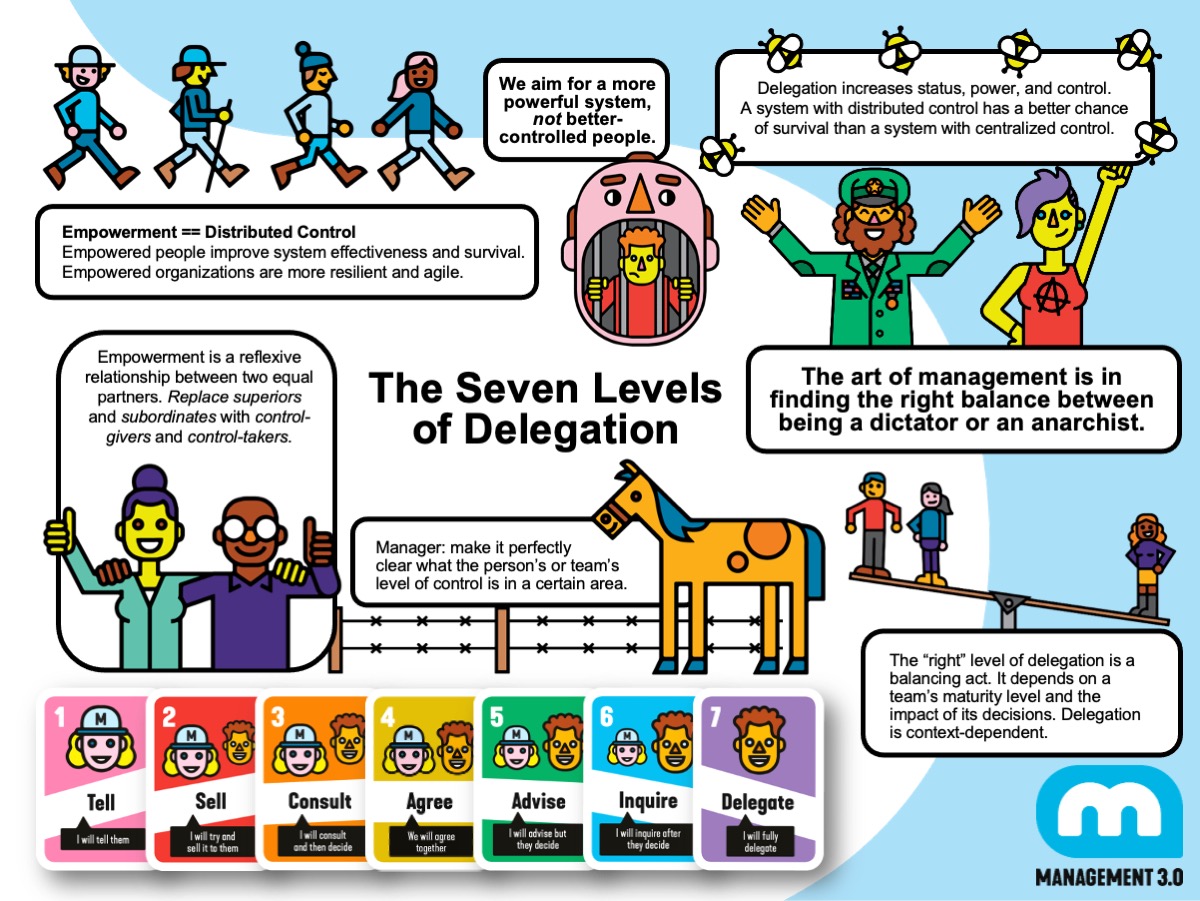People behave according to how they are treated. For example when the manager always changes what people need to deliver, then why bother making it perfect? When this happens quality of work goes down and the manager sees confirmation that more control is needed. That’s where delegation comes into play.
What you will learn?
- The origin of the verb “to manage” and how it relates to team management.
- Understand that people will behave as they are treated, a self-fulfilling prophecy trap.
- A complex system can be not managed from one central node and what is a better approach in a Management 3.0 context.
- How authority and ability are related to empowerment, what they mean and the difference.
- What is exactly empowerment and distributed control, and why is this important.
- Difference between accountability and responsibility. How are they connected to the empowerment of teams?
- Understand that accountability can’t be delegated by managers and leaders, the accountability trap.
- A better approach to the concept of superiors and subordinates, as also the fact managers and leaders can be empowered by teams.
- Understanding delegation is not black and white, the seven levels of delegation: Tell, Sell, Consult, Agree, Advice, Inquire, Delegate.
- How to set up a Delegation Board, using also the Delegation Poker practice (get the cards here).
Delegation increases status, power and control. A system with distributed control has a better chance of survival than a system with centralized control.
What will we discuss in this module?
- How high in an organization can the decision levels be used? Operational teams, middle management, board level? Why, or why not?
- Can an organization temporarily move a key decision area back to level one or two?
- What should a manager or leader do when a team makes a clear mistake, with a big impact, on a key decision area with level six or seven?

The Delegation and Empowerment module is part of the following workshops:
Good to know: Delegation and Empowerment belongs to the Empower Teams view, just as the Teams module and Remote & Hybrid Collaboration.



